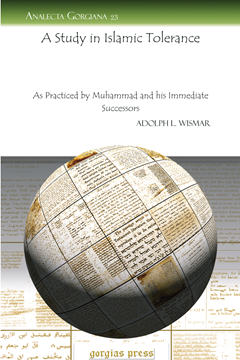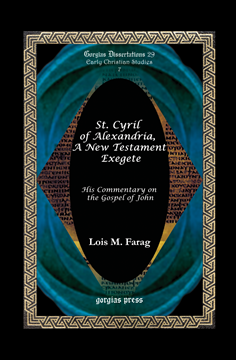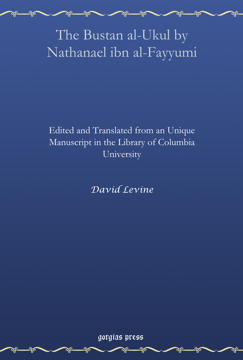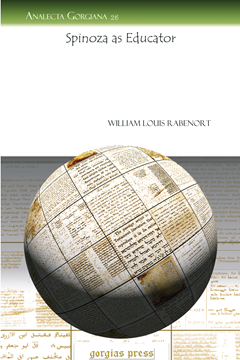A Study in Islamic Tolerance
As Practiced by Muhammad and his Immediate Successors
Series: Analecta Gorgiana 23
ISBN: 978-1-59333-580-9
The continuing developments in Islam since Wismar’s time make this book as relevant today as it was when it was published. The question explored here is what the approach of Islam is towards religious tolerance. To get at the answer, Wismar went back to the Quran and the practice of Muhammad, Abu Bakr, and Umar Ibn al-Khattab, the first two Caliphs, in order to determine what the primary sources taught on the issue.
$58.00 (USD) $34.80 (USD)
St. Cyril of Alexandria, A New Testament Exegete
His Commentary on the Gospel of John
ISBN: 978-1-59333-581-6
This study portrays Cyril of Alexandria as exegete and theologian through an examination of his Commentary on the Gospel John. It begins with an attempt to place Cyril and his commentary within their context. This work argues that Cyril wrote his Commentary on the Gospel of John early in his writing career, almost a decade before becoming bishop. Cyril’s commentary on the Johannine Gospel reveals his exegetical method and his strong Trinitarian theology. The commentary also focuses on the nature and work of the Holy Spirit: the indwelling of the Spirit is the beginning of the newness of life.
$174.00 (USD) $104.40 (USD)
The Bustan al-Ukul by Nathanael ibn al-Fayyumi
Edited and Translated from an Unique Manuscript in the Library of Columbia University
By David Levine
ISBN: 978-1-59333-584-7
The Garden of Wisdom is a rare Jewish systematic theology, here presented in English translation as well as in the Arabic (in Hebrew script) original. It is a treatise of the theology of the Jews living in Southern Arabia written by Nathanael Ibn al-Fayyumi in the twelfth century when the Jews of Yemen were undergoing persecution.
$144.00 (USD) $86.40 (USD)
Manuel de la Cosmographie du Moyen Age
Traduit de l'Arabe
By A. F. Mehren
Series: Kiraz Chronicles Archive 22
ISBN: 978-1-59333-588-5
A fine example of Arabic science, Shams ed-Din abu-Abdullah Muhammad al-Dimashqi’s Cosmography has almost been forgotten by the Western world. Translated into French by A. F. Mehren, this important historical text will now be widely available.
$197.00 (USD) $118.20 (USD)
Spinoza as Educator
Series: Analecta Gorgiana 26
ISBN: 978-1-59333-589-2
When educator William Rabenort looked at Spinoza he saw an educator. This little book on educational theory is built on the thought of Spinoza.
$52.00 (USD) $31.20 (USD)
Sidon
A Study in Oriental History
ISBN: 978-1-59333-592-2
Although the name of "Sidon" is familiar to readers of the Bible, few know much about it. In this seminal study of the city of Sidon the reader is taken through what can be known of the political history and cultural influence, ancient and present, of this important city.
$130.00 (USD) $78.00 (USD)





